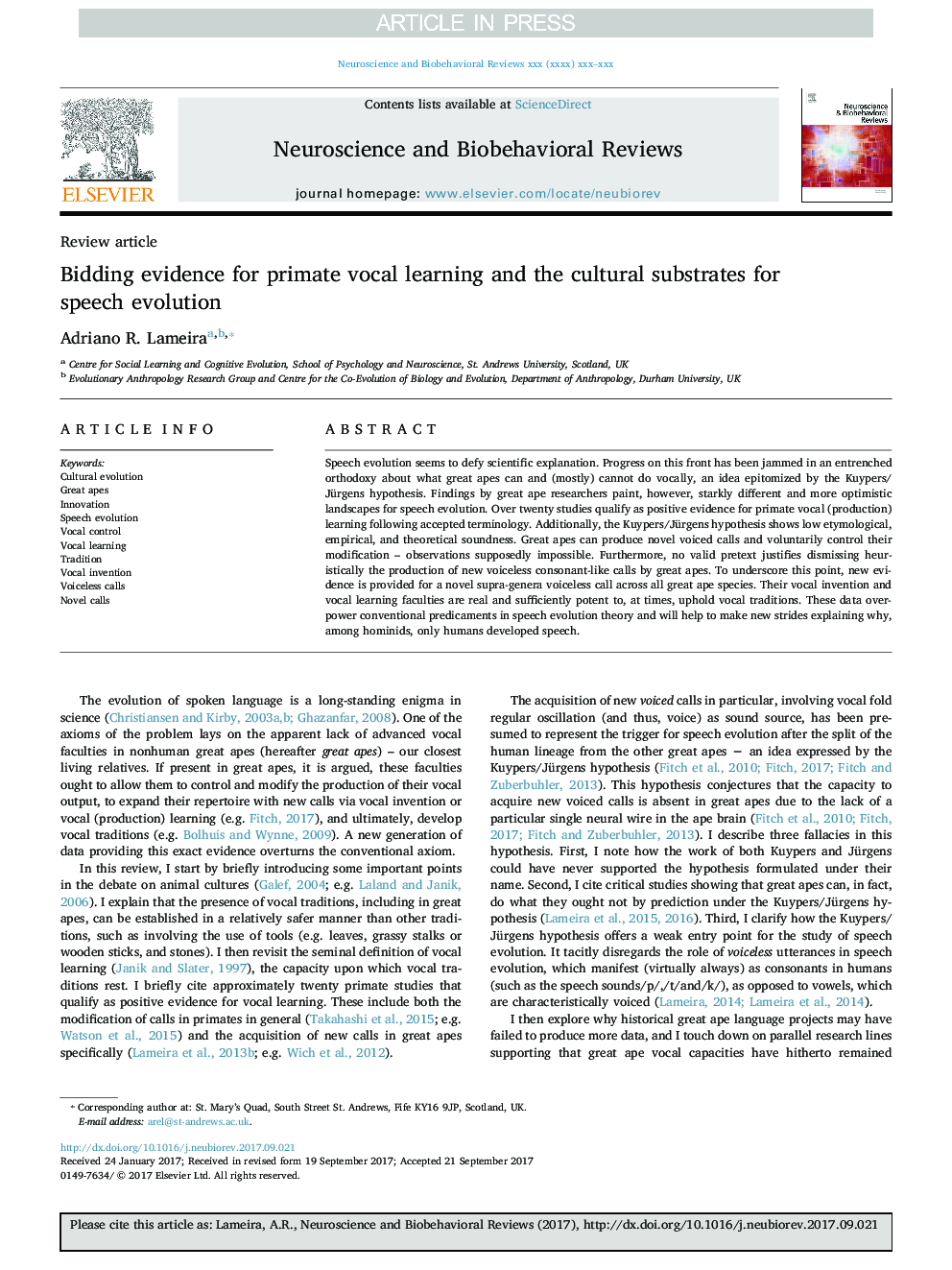| Article ID | Journal | Published Year | Pages | File Type |
|---|---|---|---|---|
| 7302349 | Neuroscience & Biobehavioral Reviews | 2017 | 11 Pages |
Abstract
Speech evolution seems to defy scientific explanation. Progress on this front has been jammed in an entrenched orthodoxy about what great apes can and (mostly) cannot do vocally, an idea epitomized by the Kuypers/Jürgens hypothesis. Findings by great ape researchers paint, however, starkly different and more optimistic landscapes for speech evolution. Over twenty studies qualify as positive evidence for primate vocal (production) learning following accepted terminology. Additionally, the Kuypers/Jürgens hypothesis shows low etymological, empirical, and theoretical soundness. Great apes can produce novel voiced calls and voluntarily control their modification - observations supposedly impossible. Furthermore, no valid pretext justifies dismissing heuristically the production of new voiceless consonant-like calls by great apes. To underscore this point, new evidence is provided for a novel supra-genera voiceless call across all great ape species. Their vocal invention and vocal learning faculties are real and sufficiently potent to, at times, uphold vocal traditions. These data overpower conventional predicaments in speech evolution theory and will help to make new strides explaining why, among hominids, only humans developed speech.
Related Topics
Life Sciences
Neuroscience
Behavioral Neuroscience
Authors
Adriano R. Lameira,
